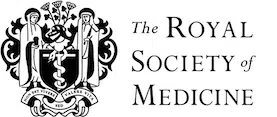The treatment for sleep disorders depends on the type of disorder the patient has. In general, specialists recommend avoiding taking medications that may cause insomnia or avoid consuming caffeine, sugary drinks, alcohol, and tobacco. Also, it is advisable to shorten the time you are in bed only when you go to sleep. That is, it is important not to watch television, read, or eat whilst in bed.
Depending on your sleep disorder, a specialist may require you to enter a sleep lab to analyse your patterns of sleep. In a sleep lab, you are connected to monitors that track the heart, brain, and breathing whilst you sleep.
Here are some specific treatments for common sleep disorders:
- Insomnia – improving ‘sleep hygiene’, such as avoiding caffeine, exercising regularly, keeping your bedroom dark and quiet.
- Snoring – sleeping on your side, quitting smoking, treating any underlying allergies.
- Sleep apnoea – you may require a CPAP machine whilst you sleep, which keeps your airways open.
- Narcolepsy – having scheduled naps and medication to keep you awake during the day.






